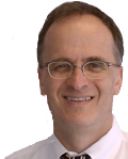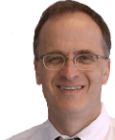Depression
The Power of Wake
Can depression be treated effectively without medication or therapy?
Posted September 22, 2017 Reviewed by Ekua Hagan
From college days, many of us can recall a more or less pervasive culture of “getting high and pulling all-nighters.” Whether we pursued this lifestyle ourselves or merely watched our classmates go wild, intoxication and sleep deprivation were often part of daily life on campus. After graduating and entering the workforce, we probably chalked up such behaviors to adolescent foolishness, if we gave them any thought at all.
So it may come as a bit of a shock to realize that neuropsychiatric researchers are now seriously investigating just about every part of going wild, searching for effective treatments for depression and other psychiatric disorders. (Not entirely illogical. After all, why would stressed-out college kids mess up sleep-wake cycles and try every licit and illicit chemical if they didn’t get at least momentary relief?)
The most publicized line of such research is related to "psychotropic" recreational drugs. Studies on ketamine, an anesthetic medication known among drug users as "Special K," have led to searches for new rapidly-acting antidepressant treatments. Ketamine has been shown to relieve severe depression in a matter of hours, even minutes, probably by changing the activity of the neurotransmitter glutamate. Similarly, LSD, Ecstasy, hallucinogenic mushrooms, marijuana derivatives, and a host of other drugs are also being explored for their possible therapeutic effects in depression, post-traumatic stress disorder, and other conditions.
Studying all-nighters — a "chronotropic'" exploration
In contrast, much less attention has been paid to the other pole of college exploration: the occasional (or more often) all-nighter in which students, usually in pursuit of a passing grade, prop their eyes open for a last-minute study binge. In the natural laboratory of campus life, college students engage in what you could call "Chronotropic" explorations. Just as they explore all manner of recreational 'psychotropics', they also seek psychological effects by testing the bounds of the clock, that is, in search of chronotropia.
Hence, they disrupt their sleep-wake cycles with incredible ingenuity, perhaps lying in bed all day, or staying awake all night, or both; sometimes to study, other times to party, and other times for no discernable reason. Some of these experiments can lead to bad outcomes--for instance, kids who test whether they need to sleep at all; or those who abandon the 24-hour cycle entirely, sleeping willy-nilly whenever they feel the urge. And those who flip their sleep cycle around entirely, being awake all night and sleeping all day, may get into academic difficulties. For researchers, the prolonged wakefulness of all-nighters is of particular interest. Numerous studies have shown that sleep deprivation itself, or 'wake therapy' can be an effective treatment for depression, even among suicidal psychiatric inpatients.
But in contrast to the many ongoing federally- and industry-funded studies of ketamine and related drugs, little funding is available for studies of wake therapy, at least in part because there is no product for which to seek FDA approval and little room for profit. Most studies to date are small, and none are placebo-controlled. Which is a shame. After all, it has been known for decades that prolonged wakefulness—that is, keeping a depressed person awake for more than 24 hours—often quickly relieves depression. This rapid relief of often previously intractable symptoms is eerily similar to what occurs with ketamine, where symptoms also may melt away almost instantly. Like ketamine, studies have shown that prolonged wakefulness leads to major neurotransmitter effects, including on glutamate (though prolonged wakefulness also has powerful effects on the genes that control the brain’s biological clock, and perhaps mood as well.)
The problem with wake therapy—just like ketamine, incidentally—is that the relief from depression may be transitory, lasting only a few days. Then the symptoms may come back.
Thus, ketamine and wake therapy researchers face the same challenge: how to preserve improvement, how to keep depression in remission for weeks or months, and how to turn a powerful short-term biological effect into an effective ongoing treatment.
For wake therapy researchers, the search to maintain wakefulness improvement has gone two ways: some have tried medications, like lithium (especially for bipolar depression, depressed episodes seen in people with manic-depressive illness). Other researchers have tried adding one or another "environmental manipulation.” The latter include: 1) bright light therapy, 2) sleep phase advancement or 3) both together. Each of these approaches on its own has been shown to help depression. Initially, light therapy was tested in people with seasonal affective disorder, whose episodes of depression are keyed to seasonal changes. In a 2016 study, Dr. Raymond Lam and colleagues showed that light therapy was also effective in people with non-seasonal depression. In recent years, figuring that more might be better, light therapy and sleep phase advancement are often combined with prolonged wakefulness, in what is called “triple therapy.” Several studies have been done with different versions of this triple therapy, in which depressed patients are exposed to bright morning lights and have various adjustments of their sleep schedule, in combination with different schedules of sleep deprivation.
In search of a reliable treatment
And yet, doctors and therapists who treat patients with chronotherapy are still far from having a reliable alternative to the standard antidepressant regimens, either medication (especially the serotonin reuptake inhibitors) or psychotherapy (particularly cognitive behavioral therapy and interpersonal psychotherapy).
Scientifically, the biggest problem is that the existing triple therapy studies, combining sleep deprivation, bright lights, and sleep phase changes, all lack a comparison condition, so it’s unclear whether to what degree improvement comes from the treatment itself or from placebo effects. Beyond this, we still don’t know the best way to combine these various chronotherapy interventions. Dosing, timing, duration; the usual questions arise. And we have no way of predicting who will respond to one or another component of treatment, and for whom it is a waste of time.
A new RCT
Which leads to an exciting study we have started at the Depression Evaluation Service (DES) at Columbia University’s Department of Psychiatry in New York. After much consideration, we’ve decided to compare two forms of triple therapy in people with depression in a randomized controlled study, the first to our knowledge. (See below for links related to the study.)
The goal of our ongoing DES study, which is being crowd-funded, is to test the effectiveness of chronotherapy further and to begin to investigate its possible mechanisms, including testing whether changes in the biological clock and the normalization of sleep are related to improvement in depression. Depending on what we find, further studies could investigate the biology of sleep changes, the effects on hormone levels, and brain structure and connectivity as measured by MRI imaging and neuropsychological tests.
Whatever we find should be of interest, which is the best kind of study to pursue. We are about halfway through this study, and hope to be done within about a year—so stay tuned!
+++++++++++++++++++++++++++++++++
UPDATE: OUR STUDY HAS BEEN PUBLISHED IN THE JOURNAL OF AFFECTIVE DISORDERS, 2021. WE THANK OUR SUPPORTERS AND DONORS -- AND MOST OF ALL, OUR STUDY PARTICIPANTS!
Full Abstract at https://scholar.google.com/scholar?hl=en&as_sdt=0%2C33&q=hellerstein+tr…
From ABSTRACT: our study "demonstrated triple chronotherapy's feasibility and tolerability in unipolar depressed outpatients. Larger randomized trials are warranted to further characterize acute and long-term efficacy."
+++++++++++++++++++++++++++++++
Resources
- The Center for Environmental Therapeutics is an organization dedicated to researching chronotherapy as a psychiatric treatment tool: https://www.cet.org/
- Wake Therapy combined with antidepressant treatment leads to a rapid and long-term effect: http://www.medscape.com/viewarticle/840191
- Triple Therapy method improves mood and suicidality: https://www.ncbi.nlm.nih.gov/pmc/articles/PMC4252537/
- Wake Therapy in has been useful in bipolar depression: http://www.sciencedirect.com/science/article/pii/S0006322309002315
- Bright light treatment is effective for non-seasonal major depressive disorder:
- https://www.ncbi.nlm.nih.gov/pubmed/26580307
- Depression Evaluation Service, Columbia University Dept of Psychiatry website:
- www.depression-nyc.org
- Crowdfunding for the Columbia DES project -- if you are interested in contributing, see: https://crowdfund.columbia.edu/project/6599
- Link to the DES Chronotherapy study: https://clinicaltrials.gov/ct2/show/NCT03010488
References
Benedetti, Francesco, et al. "Rapid treatment response of suicidal symptoms to lithium, sleep deprivation, and light therapy (chronotherapeutics) in drug-resistant bipolar depression." Journal of Clinical Psychiatry 75.2 (2014): 133-140.
Bunney, Blynn G., and William E. Bunney. "Mechanisms of rapid antidepressant effects of sleep deprivation therapy: clock genes and circadian rhythms." Biological Psychiatry 73.12 (2013): 1164-1171.
Hefti, Katharina, et al. "Increased metabotropic glutamate receptor subtype 5 availability in human brain after one night without sleep." Biological Psychiatry73.2 (2013): 161-168.
Sahlem, Gregory L., et al. "Adjunctive triple chronotherapy (combined total sleep deprivation, sleep phase advance, and bright light therapy) rapidly improves mood and suicidality in suicidal depressed inpatients: an open label pilot study." Journal of Psychiatric Research 59 (2014): 101-107.
PUBLISHED PAPER FROM CITED STUDY:
Yuen, L.D., Chen, Y., Stewart, J.W., Arden, P. and Hellerstein, D.J., 2021. A randomized, controlled trial assessing the acute efficacy of triple chronotherapy in unipolar depression. Journal of Affective Disorders, 282, pp.1143-1152.




